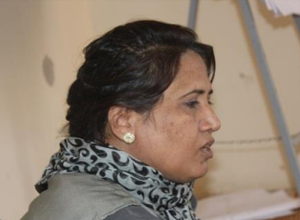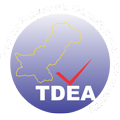Shaheed Benazir Park in Talhar taluka (sub-district) of Badin district in Sindh province is now open to visitors, thanks to Marvi Abida who raised her voice to ensure that local women and men have access to the public facility established using development funds. More importantly, as a result of Abida’s efforts, two days of the week – Wednesday and Friday – have now been exclusively reserved for female visitors to the park.
Pakistani women, particularly those living in rural areas, lack access to basic human rights guaranteed under the country’s constitution because of a host of factors – social norms and restrictions being one of the most prominent. In particular, women’s mobility is restricted, so much so that they are denied access to even those facilities – for example, public parks – that are meant for their recreation.
The population of Talhar taluka is about 58,000 but until recently only one park was exclusively reserved for women; and that too for only two days per week. On the other hand, the newly built Shaheed Benazir Park that had cost Rs. 20 million to Sindh’s exchequer was closed for the public and it remained under the threat of illegal encroachment by local influential people.

Marvi Abida, the president of Badin-based Soormi Development Organization, attended a training session on ”Sindh Freedom of Information Act, 2006”, organized by USAID Citizens’ Voice Project partner Strengthening Participatory Organization.
Based on the knowledge Abida had acquired during the training, she submitted a complaint to the Ombudsman Office, Badin, regarding the closure of Shaheed Benazir Park.
In response to her complaint, the Ombudsman Office asked the Tehsil Municipal Officer, Talhar, to furnish the reason(s) behind the park’s closure and he also issued a notice ordering its immediate opening for the public.
Following the order, Shaheed Benazir Park has been opened and reserved for women on Wednesdays and Fridays, as dozens of local women visit the park along with their families.
“I learned about the Sindh Freedom of Information Act, 2006, through the USAID training session. I came to know that the right to information is a fundamental human right that guarantees the actualization of all other human rights,” Abida says.
Based on her successful experience, Abida now demands proper utilization of public funds rather than bemoan their lack or shortage. In order to contribute to the betterment of Pakistan as a concerned citizen, she has submitted a number of other complaints to the Ombudsman Office and public departments.




















